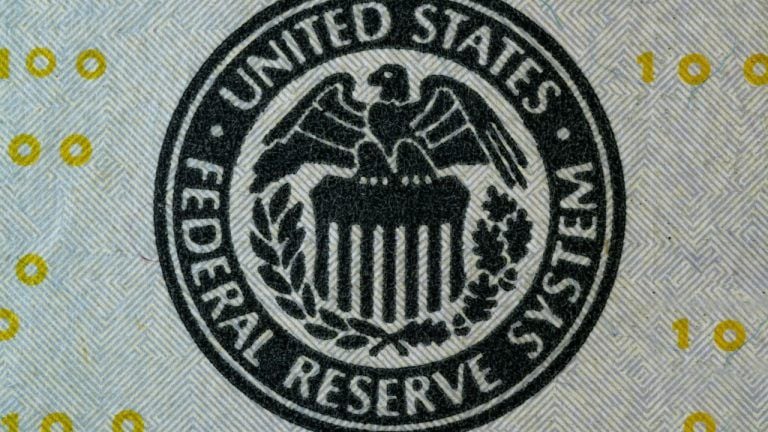While Trump and his allies mull over the possibility of a national Bitcoin reserve, some states are pushing forward with their own plans to stack sats. Here’s a look at the states leading the charge.
Texas: The Lone Star State Goes Lone Wolf on BTCEverything is bigger in Texas, and that might soon include its Bitcoin reserves. State Representative Giovanni Capriglione has introduced a bill that would establish a Bitcoin stockpile for Texas, requiring the cryptocurrency to be held in secure cold storage for at least five years. The legislation prohibits the Bitcoin from being used in transactions outside Texas, underscoring its role as a long-term asset rather than a transactional currency.
Source: X
The proposed legislation positions Texas to establish a Bitcoin reserve, securely stored in cold wallets—offline solutions praised for their resilience against cyberattacks. This reserve would remain untouched for at least five years, ensuring a long-term strategic approach. Texans would also have the option to contribute voluntarily to the fund, signaling a deeper integration of Bitcoin into the state’s financial framework.
The bill emphasizes that creating a Bitcoin reserve aligns with Texas’s goals of championing digital innovation and bolstering financial security for its residents. It explicitly prohibits the use of the reserve for transactions with foreign entities or individuals engaged in illicit activities, ensuring compliance with regulatory standards and focusing on domestic benefits.
Inflation Defense and Financial StabilityAt a live Spaces event, Representative Giovanni Capriglione outlined the rationale behind the bill, highlighting Bitcoin’s potential as a hedge against inflation. “Inflation is probably the biggest enemy of our investments,” Capriglione stated, explaining that the concept of a Bitcoin reserve had been in development for some time.
Since its inception in 2009 as a decentralized payment system, Bitcoin has evolved into a recognized store-of-value asset, often compared to gold. Advocates argue that its fixed supply offers a robust defense against inflation. This sentiment has gained mainstream traction, with even President-elect Donald Trump urging Americans to hold onto Bitcoin, reflecting a growing trend of incorporating cryptocurrency into financial planning.
Texas at the Forefront of Bitcoin AdoptionTexas has emerged as a hotspot for Bitcoin activity, with its affordable energy prices and government-backed initiatives designed to stabilize the power grid attracting a wave of cryptocurrency miners. Establishing a Bitcoin reserve would reinforce the state’s reputation as a leader in blockchain technology and innovation.
On a national level, the idea of a Bitcoin reserve is gaining momentum. Earlier this year, Senator Cynthia Lummis of Wyoming, often referred to as the “Bitcoin Senator,” introduced a proposal for a federal Bitcoin reserve. The U.S. government already holds a significant Bitcoin stockpile—over 198,000 BTC, valued at more than $20 billion—seized from criminal activity, according to data from Arkham Intelligence.
Capriglione noted a surge in Bitcoin and blockchain enthusiasm following Trump’s pro-crypto campaign and election victory. “Since November, interest in Bitcoin reserves and blockchain technology has been growing among legislators,” he remarked. “That’s encouraging because these are issues that resonate with constituents.”
Pennsylvania: A Rainy Day Fund for the FuturePennsylvania is also eyeing Bitcoin as a hedge against inflation and economic uncertainty. A bill proposed in November would allow the state Treasurer to allocate up to 10% of three key state funds—the State General Fund, Rainy Day Fund, and State Investment Fund—into Bitcoin.
Source: X
If enacted, this could amount to nearly $1 billion worth of Bitcoin purchases. Proponents argue that Bitcoin’s long-term appreciation could help Pennsylvania safeguard its assets. “Bitcoin can help Pennsylvania keep pace with inflation and economic change,” lawmakers wrote in a memo supporting the bill.
Pennsylvania Advances Bitcoin RightsPennsylvania has taken a bold step toward regulatory clarity for digital assets, positioning itself as a leader among states embracing cryptocurrency. In November, the state’s House of Representatives passed House Bill 2481, known as the “Bitcoin Rights Bill,” with an overwhelming bipartisan majority—176 votes in favor to 26 against.
The legislation solidifies key rights for Pennsylvanians, including the ability to self-custody digital assets, recognition of Bitcoin as a legal form of payment, and clearly defined tax guidelines for Bitcoin transactions. This landmark bill signals Pennsylvania’s intent to foster innovation and protect its residents in the rapidly evolving crypto space.
As federal agencies like the SEC and CFTC remain gridlocked over how to regulate the $2 trillion digital asset market, Pennsylvania’s move provides a blueprint for other states. Regulatory ambiguity at the national level continues to hinder broader crypto adoption, leaving states to address these gaps. Pennsylvania’s proactive approach reflects a growing trend of state-led innovation in the absence of federal action.
The Role of the Satoshi Action FundThe Satoshi Action Fund (SAF), a leading Bitcoin advocacy group, played a critical role in shaping the Bitcoin Rights Bill. SAF has been instrumental in advancing similar legislation across the U.S., with laws already enacted in Oklahoma, Louisiana, Montana, and Arkansas. To date, SAF has contributed to the passage of crypto-focused bills in 20 states, empowering lawmakers with tools to balance consumer protection and innovation.
Republican state Rep. Mike Cabell, the bill’s sponsor and a longtime Bitcoin investor, praised the bipartisan effort. “In such polarizing times, it’s refreshing to see both sides come together to champion innovation and protect Pennsylvanians’ financial autonomy,” Cabell stated. The legislation, he said, represents a win for both technological advancement and financial security.
The bill now heads to the Pennsylvania Senate, where it is expected to pass before landing on Governor Josh Shapiro’s desk for final approval. If signed into law, Pennsylvania will cement its status as a trailblazer in digital asset regulation, becoming one of the most progressive states in the U.S. on cryptocurrency.
Ohio: Buckeye State Embraces Crypto InnovationIn Ohio, Representative Derek Merrin has introduced the Ohio Bitcoin Reserve Act, a bill designed to establish a dedicated Bitcoin fund within the state treasury. Merrin cited concerns over the rapid devaluation of the U.S. dollar, arguing that Bitcoin could act as a safeguard against inflation.
Although the specifics are still being worked out, the proposal grants Ohio’s State Treasurer discretionary power to purchase Bitcoin, setting a precedent for flexible and adaptive management of the fund. Merrin stated on social media, “Ohio must embrace technology and protect tax dollars from eroding.”
The Bigger Picture: A Crypto Strategy for States?These state-level efforts reflect a growing interest in Bitcoin’s potential as a store of value. Advocates see Bitcoin reserves as not just a financial hedge but also a statement of technological leadership. Critics, however, worry about the risks of volatility and the uncharted regulatory territory such moves could traverse.
Whether other states will join Texas, Pennsylvania, and Ohio remains to be seen, but with Bitcoin’s price repeatedly hitting new highs, the idea of “digital gold” in state coffers is becoming less theoretical and more practical.
As the debate unfolds, one thing is clear: Bitcoin isn’t just a speculative asset anymore—it’s becoming part of the American economic conversation at both state and national levels.



















